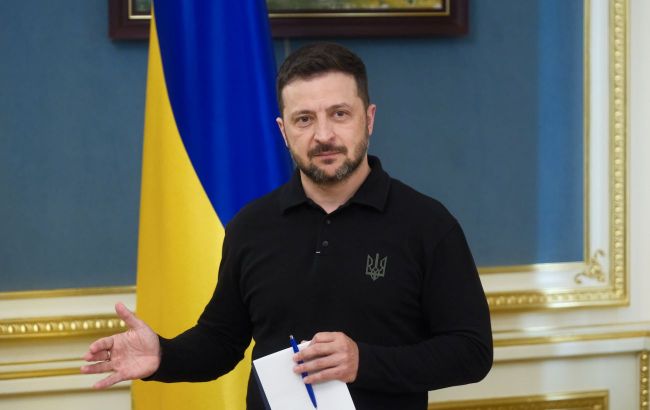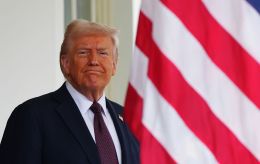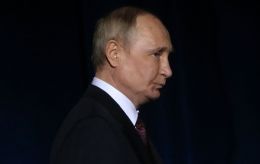When could unconditional ceasefire between Ukraine and Russia happen? Zelenskyy explains
 Photo: President of Ukraine Volodymyr Zelenskyy (Vitalii Nosach, RBC-Ukraine)
Photo: President of Ukraine Volodymyr Zelenskyy (Vitalii Nosach, RBC-Ukraine)
Ukraine is ready for an unconditional ceasefire, but this depends on the willingness of Russian President Vladimir Putin, stated Ukrainian President Volodymyr Zelenskyy during a conversation with journalists.
"At the moment, there has been no unconditional ceasefire. This desire and proposal came from the US, the European colleagues’ desire, and support from Ukraine’s side. Ukraine is ready for an unconditional ceasefire. What does this mean? The answer is in the phrase itself – unconditional ceasefire, without any conditions. This means no strikes on our territory and, accordingly, no retaliation," Zelenskyy said.
He reiterated that Ukraine is ready for an unconditional ceasefire, but if it is partial, then "we are ready for retaliatory actions."
"If they do not strike our energy infrastructure, we will not strike theirs in response. If long-range weapons are not used, Ukraine will not use long-range weapons. If we are ready for an unconditional ceasefire, it means silence at sea, in the sky, on the front line, on the ground. Ukraine is ready for corresponding steps," the President emphasized.
He stressed that this depends entirely on the desire of Vladimir Putin.
"Putin showed on Easter that if they want to reduce the strikes, they can reduce them. They reduced them, but there is still a long way to go before an unconditional ceasefire. They did not use long-range weapons, they used FPVs. This happened on Easter. But before and after that, they used everything they have," Zelenskyy added.
He also mentioned that American partners are negotiating with Ukraine and Europe, as well as with the Russian side.
"We need the Russians to react positively," the President said.
Ceasefire in Ukraine
The US has been attempting to broker a ceasefire between Ukraine and Russia for several months now.
Recently, Russian President Vladimir Putin announced an Easter ceasefire from 6:00 p.m. on April 19 to midnight on April 21. He stated that he had ordered a halt to all hostilities.
In response, Ukrainian President Volodymyr Zelenskyy agreed to the ceasefire and noted that Ukraine would retaliate if there were any violations.
As a result, fighting on the frontlines continued, although a decrease in the number of shellings was recorded. Meanwhile, the night in Ukraine passed peacefully, with no air alerts in any region.
Zelenskyy also proposed to Russia a 30-day ceasefire, during which attacks on civilian targets would be prohibited. In response, Vladimir Putin stated that the proposal needed to be reviewed.
Later, the Kremlin announced that Putin wanted bilateral negotiations with Ukraine regarding a mutual cessation of strikes on civilian targets for at least 30 days.
Earlier, US Secretary of State Marco Rubio stated that the US could withdraw from its role as a mediator between Ukraine and Russia. He noted that this could happen if there were no signs of a swift agreement between the warring parties in the coming days.
At the same time, US President Donald Trump confirmed that his country might exit peace talks on Ukraine if either side of the conflict obstructs peace.

